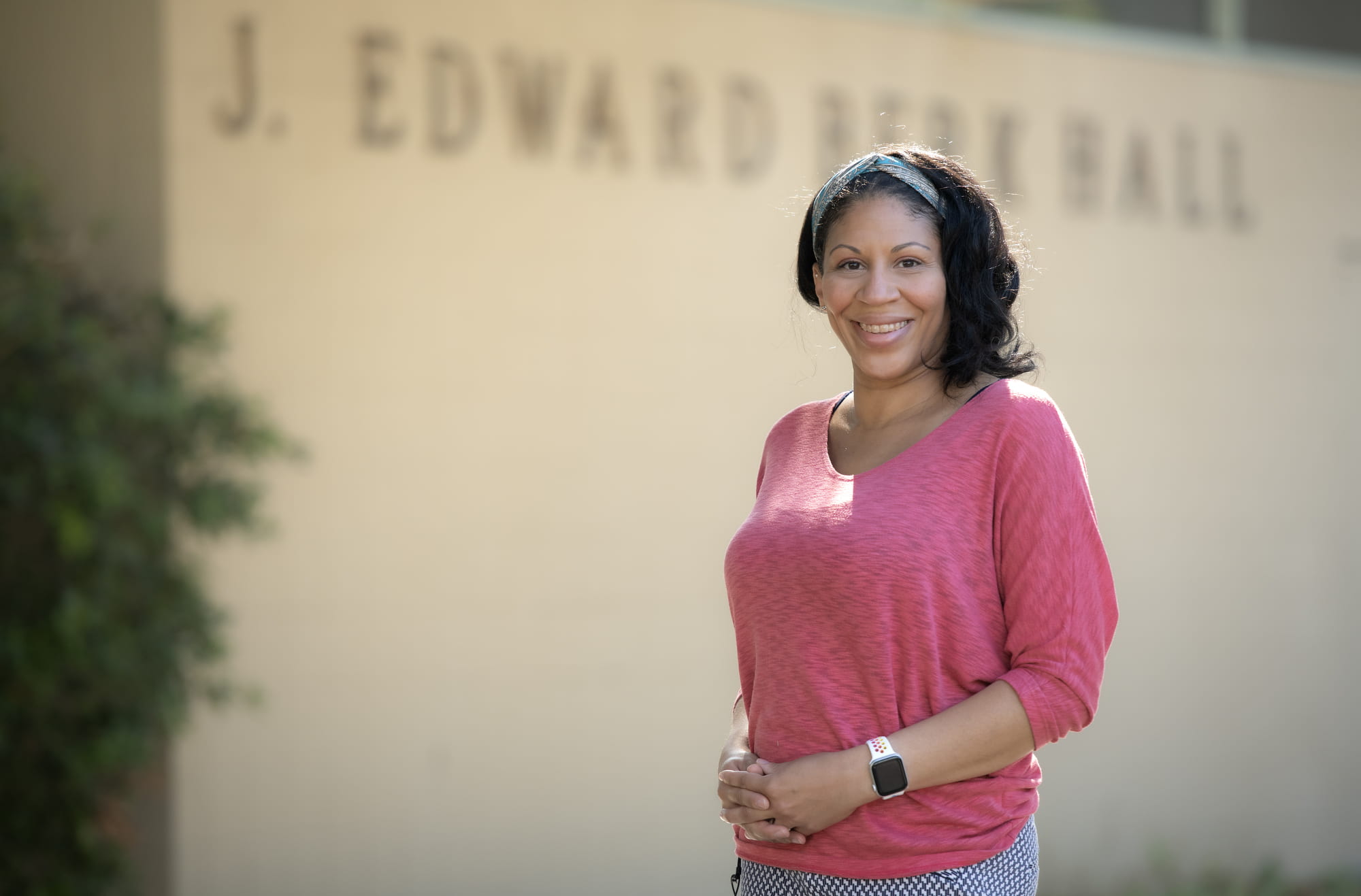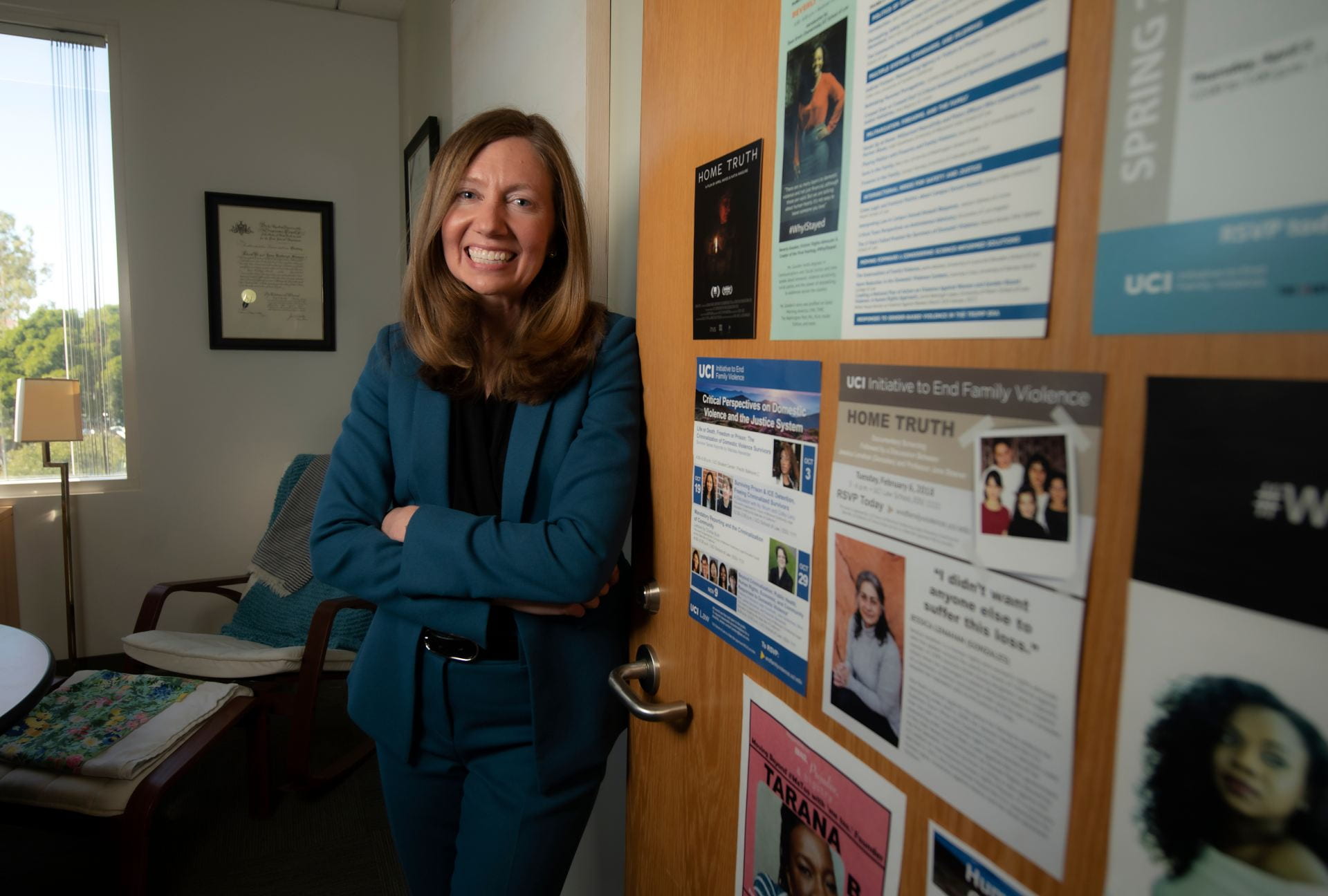Nurse finds her niche
New faculty member will help create a psychiatric-mental health specialization in UCI’s D.N.P. program

It was during her last rotation as a nursing student, at an outpatient program for severely mentally ill patients, that Dawn Bounds found her calling. Now, as she begins a new journey as an assistant professor in UCI’s Sue & Bill Gross School of Nursing, she reflects on those early days.
“I absolutely loved it – to sit and talk with my patients and really try to understand the context of their lives and how they could be supported,” recalls the Chicago native. “It was such an enjoyable experience that from that moment on I knew that I’d be specializing in psychiatry.”
Bounds, who had been expected to go into medical-surgical nursing, instead took a position in an inpatient child and adolescent psychiatry unit right after graduation. Being in such a challenging environment came naturally to her – so much so that she used to joke she’d return after she retired. Bounds worked there while earning a master’s degree to become a family psychiatric-mental health nurse practitioner and a Ph.D. in nursing science at Rush University. Later on, she continued her career at Rush as an assistant professor in the College of Nursing and the Medical College’s Department of Psychiatry & Behavioral Sciences.
As a nurse practitioner, Bounds served in high schools and the county juvenile detention center on Chicago’s West Side, helping at-risk female youths who were caught in a cycle of running away and getting locked up as a result. “I had two questions: Who are you running away from – what’s happening in the household that keeps you running? And who are you running to?” she recalls.
“Years ago, I attended a forensic nursing conference, and they were talking about sex trafficking and sexual exploitation and all the red flags, and I just couldn’t help but think, ‘These are the girls I’m already taking care of,’” Bounds says. “But nobody’s calling it sex trafficking or sexual exploitation. They’re just criminalizing these girls’ behaviors. They had these histories of being traumatized, and then on the other end, I was seeing them in juvenile detention, and I thought, ‘Something needs to change.’”
Her research and day-to-day treatment took a fresh focus. Unlike youngsters, who are often removed from abusive homes by child welfare services, teens are more likely to remain in tenuous situations – until they flee on their own. Supporting young people, Bounds realized, meant supporting their entire families, especially those with minimal resources.
“These amazing kids were still going to school despite living in neighborhoods with shootings, violence and substance use,” she says. “I was just really looking for ways to be of assistance and help them solidify some support networks so that they could not just survive but thrive amid a lot of things that were beyond our control.”
At UCI, where she joined the faculty this summer, Bounds will help establish a psychiatric-mental health nurse practitioner specialization in the Doctor of Nursing Practice program. But the campus is not the only community that will benefit from her expertise and compassion. She plans on partnering with primary care providers across Orange County to create an intervention that supports both at-risk youths and their caregivers – support that goes beyond identifying trauma and suggesting such emotional regulation techniques as exercise, yoga and mindfulness.
“I feel like there’s this gap in healthcare in terms of how to make that happen, and I think that nurses and other health workers can really become health coaches in the community,” Bounds says. “Supporting teens who have been chronically exposed to adversity could also mean connecting them to positive environments such as school-, faith- or sports-based youth programming, as well as providing mental health care, housing and support groups.”
Her courses in the Sue & Bill Gross School of Nursing are currently being delivered through Zoom, a tool she thinks could also serve a purpose in treating vulnerable patients. Still, Bounds misses the human connection and hopes her students can feel her warmth and sincerity through the screen. “Being a psych nurse, I know that those relationships you build are so important,” she says. “Even when they’re not my patients, when they’re my students and my colleagues, I want that connection to be there.”
When asked about her proudest accomplishment, Bounds cites her mentoring ability. “I come from a community that could be considered under-resourced, so I’m really proud to be a role model for those I work with. I was raised by a single mom; I’m a first-gen college student. And now I have a Ph.D. and am working at the University of California,” she says. “To me, I’m an example for that young person who right now might have limited resources and support. Examples like me that demonstrate possibilities for young people are so important.”


